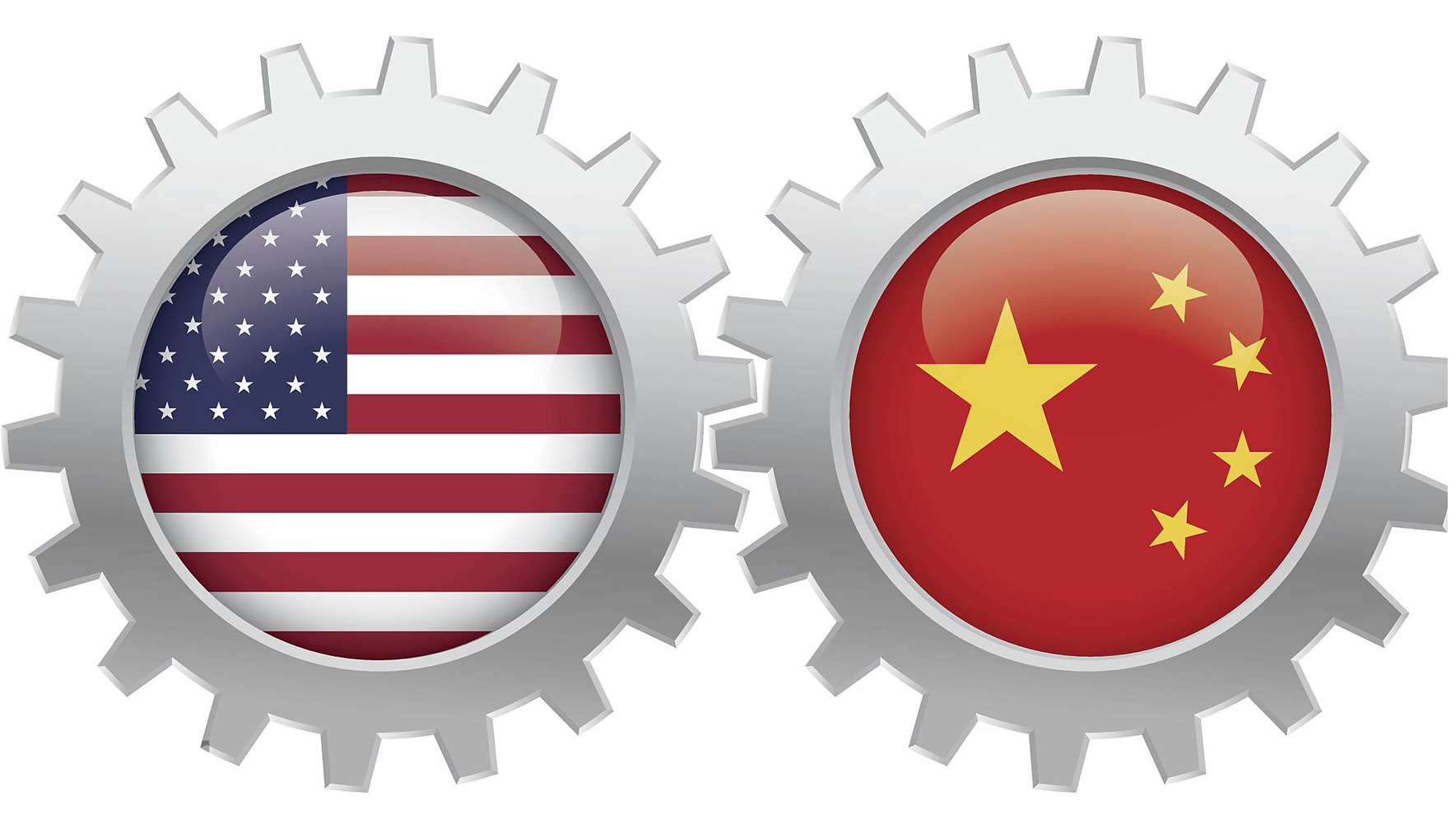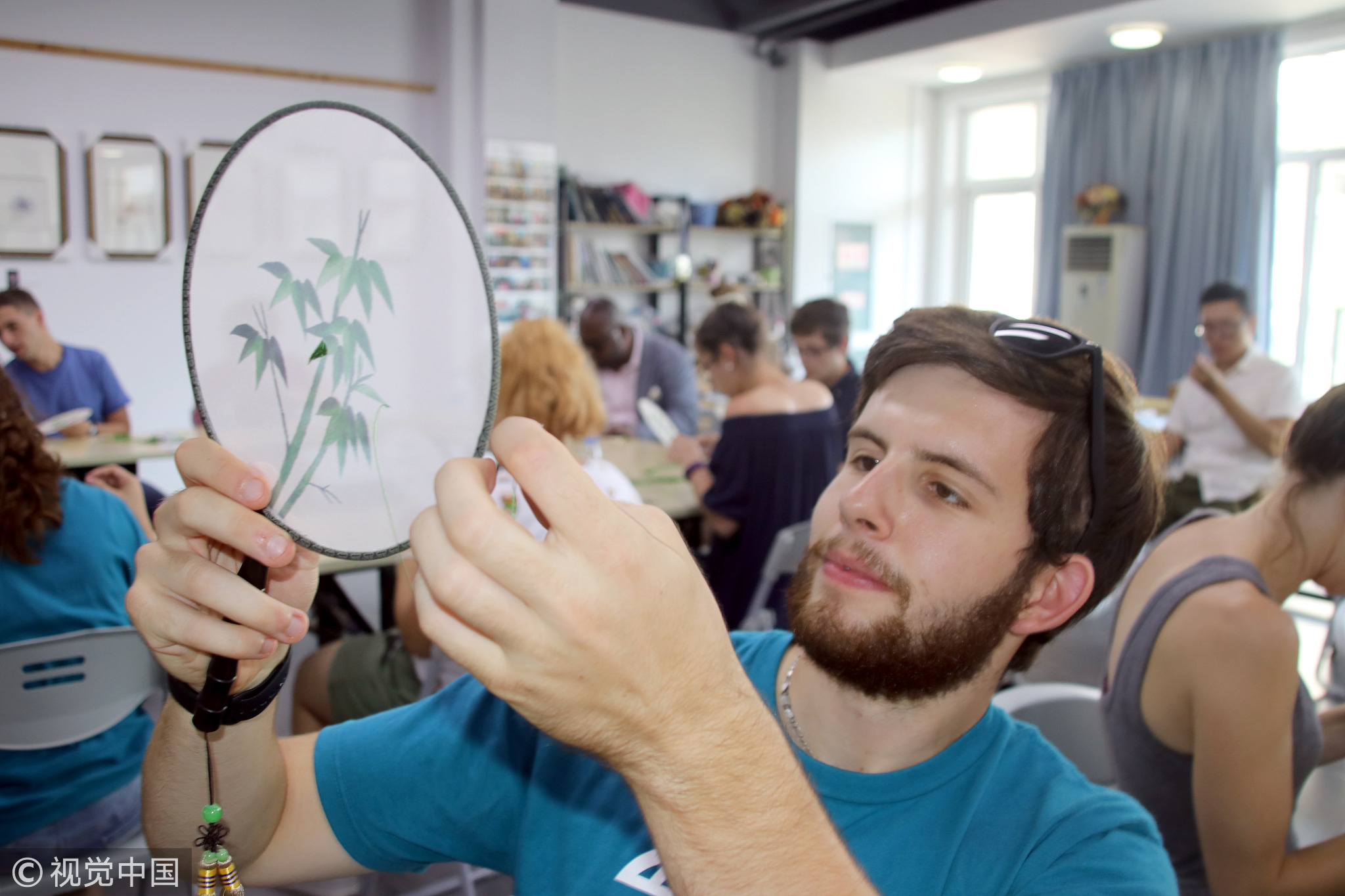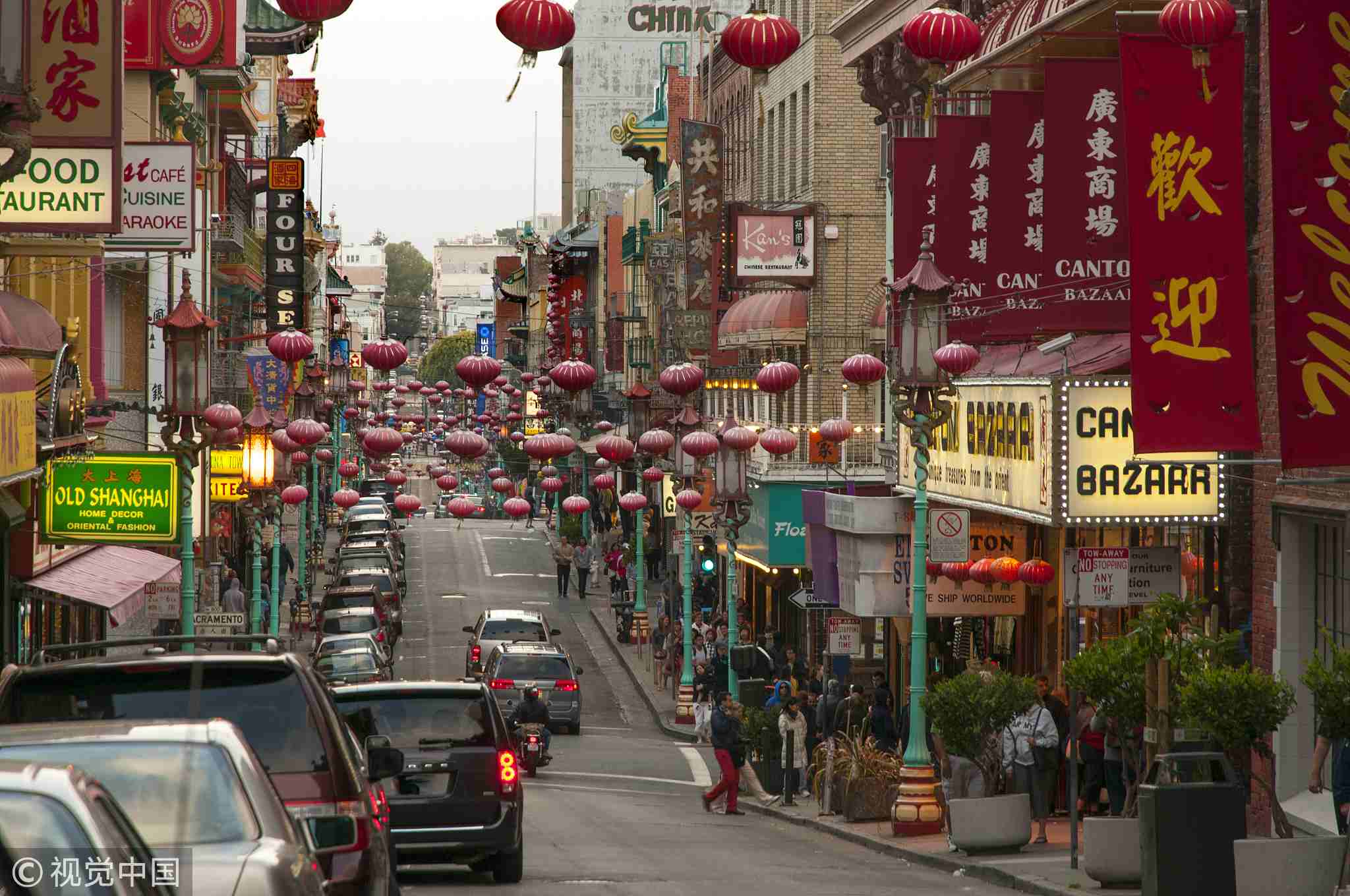
Opinions
15:27, 17-Dec-2018
Opinion: A positive philosophy of ABCDE for Sino-U.S. relations
Updated
15:19, 20-Dec-2018
Jia Wenshan

Editor's note: Jia Wenshan is a professor at the School of Communication at Chapman University in California and a research fellow at the National Academy for Development & Strategy at Renmin University of China.The article reflects the author's opinions, and not necessarily the views of CGTN.
When the Joint Communique on the Establishment of Diplomatic Relations between the People's Republic of China and the United States of America was released on December 16, 1978, I was 17 years old. That's when I was exposed to English for the first time.
Today, I still remember my very first English class as a student of the three-month high school English teachers training program hosted by Education Bureau of Pingli County, Shaanxi Province. It was taught by teacher Li who had earned an associate degree in English 10 years before, but had ended up teaching Physical Education until this First English Teachers Training Program in the county.
I learned to pronounce the first five letters of the English alphabet: A, B, C, D, and E for the first time. I found it not only difficult to differentiate all the sounds among the letters, but also pronouncing them created unusual muscle strain in my speech organ.

An American student studies embroidery in Suzhou, China, July 27, 2018. /VCG Photo
An American student studies embroidery in Suzhou, China, July 27, 2018. /VCG Photo
That first afternoon, I hid myself in the bushes of a nearby creek, practicing the letters again and again, trying to listen to myself while practicing. Gradually, I found my own very musical pronunciation of these letters. This kicked off my passion for English and many things related to it such as English literature, particularly prose and poetry, English public speaking, debating, and so on.
Since then, my personal and professional growth as a bilingual and bicultural scholar with an intercultural identity has been intricately tied to the growth and development of the U.S.-China relationship. This explains why I wrote and redefined Nial Ferguson's economic concept of “Chimerica” as an intercultural concept, meaning “cultivation and growth of synergy between the U.S. and China" on the basis of both my personal and professional experience and observations. I believe that the U.S. and China can internalize each other's cultures for both mutual gain and the larger good.
Later on, I discovered that the program had been part of the very beginning of a nationwide drive in China to learn English which is still ongoing.`Today, China boasts more than 300 million English-speaking nationals, more than the English-literate U.S. population.
This bilingual and bicultural Chinese population has not only helped open up and reform China, but has also helped the entire Chinese population better understand other world cultures, particularly Western culture with a special focus on American culture. Some of them have not only translated almost all the Western classics into Chinese and have them published in China, but they are also beginning to translate and publish Chinese classics into foreign languages such as English.
However, a similar drive on such a massive scale to learn the Chinese language and culture has not occurred in Western countries, including the U.S.
Chinese-literate Westerners, without counting people of Chinese heritage in Western countries, are estimated at a mere 300,000, one percent of the English-literate Chinese population. Chinese literate bilingual and bicultural Americans, without counting those of Chinese heritage, are estimated at 30,000 at most.

Chinatown in San Francisco, California, U.S. /VCG Photo
Chinatown in San Francisco, California, U.S. /VCG Photo
This disparity has created a serious understanding deficit between China and the West, particularly between the U.S. and China, as was made clear by the recently produced documentary in the U.S. called “Better Angels.”
To find a solution, let me go back to the first five letters of the English alphabet which I learned 40 years ago. Relating these letters to the ups and downs of U.S.-China relations during the past four decades, I have come to cultivate a much deeper understanding of the five letters, which, to me, could stand for two different kinds of philosophy for U.S.-China relations.
Because of the understanding deficit between the U.S. and China, for example, a negative philosophy of ABCDE seems to have been informing the current American administration's policy towards China at times, especially recently.
In this philosophy, A seems to stand for Ammunition which means to turn mutual interdependence into weapons against the counterpart.
B seems to symbolize Bickering, meaning a non-sense tirade or noise detrimental to the normal functioning of U.S.-China relations.
C stands for Conflict, meaning turning opportunities into crises.
D stands for Destruction meaning causing losses to both sides, including oneself.
Finally, E stands for Entropy which means propelling a decline of one's own status and position in the world by one's own making.
Perhaps more attention should be focused on reducing such a glaring understanding deficit over the next 40 years. In this case, the cultivation of a positive philosophy of ABCDE is strongly advised to chart and engineer U.S.-China relations during this period into “a new type of relationship” envisioned and proposed by Chinese President Xi Jinping, an upgrade of its prototype in the Joint Communique of the United States of America and the People's Republic of China originally released on December 16, 1978.
In this sense, A stands for Alliance, B stands for Business, C stands Communication, D symbolizes Development, E means Excellence. ABCDE in this context means the U.S. and China are advised to build an Alliance centering on Business (economic globalization, global governance and cultural exchanges) through Communication and Consultation for mutual Development and to achieve Excellence for both parties. A positive philosophy of ABCDE seems to be the right way to sustain U.S.-China relations on a win-win path as desired by Richard Nixon who paved the way for the normalization of ties between the two nations more than 40 years ago.
(If you want to contribute and have specific expertise, contact us at opinions@cgtn.com)

SITEMAP
Copyright © 2018 CGTN. Beijing ICP prepared NO.16065310-3
Copyright © 2018 CGTN. Beijing ICP prepared NO.16065310-3